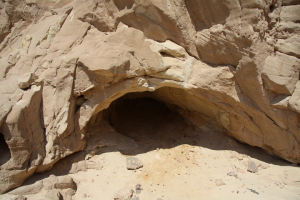Archaeologists have finally found evidence that could prove the existence of King Solomon's mines, and they found it in donkey dung that is thousands of years old.
The discovery was made by archaeologist Erez Ben-Yosef from the University of Tel Aviv, and his findings were published at the Journal of Archaeological Science: Reports.
While digging at a site in Timna Valley called Slaves' Hill, which is known for having old copper mines, he and his team found the excrement of a donkey.
At first, he thought it was from the animals of nomads who went to the place decades ago. However, carbon dating of the sample revealed that it was thousands of years old and dated back to 10th century B.C.-the time when King David and his son Solomon existed based on biblical accounts.
"We thought maybe some nomads had camped there with their goats a few decades ago," Ben-Yosef said, according to National Geographic. "But the [radiocarbon] dates came back from the lab, and they confirmed we were talking about donkeys and other livestock from the 10th century B.C. It was hard to believe."
According to the Bible, King Solomon was extremely wealthy and he undertook the construction of the Temple and other structures that required large amounts of metal like gold and bronze. Some scholars believe he was able to source these metals from large-scale mining. However, the location of such mines has not been known.
The excavation of Slaves' Hill, where the donkey dung was unearthed, has yielded more than a thousand tons of smelting debris. This indicated just how large-scale the ancient mines were.
Chapter 8 of the book of 2 Samuel records King David defeating Edom, causing the Edomites to be subject to him: "And David became famous after he returned from striking down eighteen thousand Edomites in the Valley of Salt. He put garrisons throughout Edom, and all the Edomites became subject to David. The Lord gave David victory wherever he went." (2 Samuel 8:13-14)
Having been subdued, Edom probably paid tribute to King David by providing him with metals from the mines, allowing Solomon, who became king after his father, to get resources for the structures he constructed.
"There's a serious possibility that Jerusalem got its wealth from taxing these mining operations," Ben-Yosef said.
Interestingly, the donkey dung contained some plant material that was found about 300 kilometers north of the site. This meant the ancient communities had to import animal feed from a distant place to sustain mining operations, which was a major industry at the time.
No evidence has yet been found that actually links the mines to King Solomon himself, but learning that the mines in Timna Valley were operated during the time of Solomon is a big step.
"Until recently we had almost nothing from this period in this area," Ben-Yosef said. "But now we not only know that this was a source of copper, but also that it's from the days of King David and his son Solomon."

















